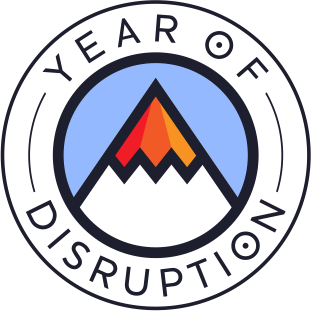Plus 13.
By Erik J. Heels
First published 9/1/2016; YearOfDisruption.com; publisher: GiantPeople.
- How To Build A Startup: One Board At A Time, Be Yourself, Get Plants (2016-06-15)
Top 11 tips for entrepreneurs. - Why Startups Should Always Do Patent Searches (2014-05-23)
The USPTO will never require mandatory patent searching. But I can dream. - The Who, What, Where, When, Why, And How Of Patents (2014-03-12)
Patent law in plain English. But not in that order. - Top 10 Things BigLaw Patent Lawyers Don’t Want You To Know (2012-09-26)
And won’t tell you. Srsly. - Patent Law 101 (2011-01-26)
An introduction to patent law in plain English. - Top 10 Things Smart Companies Should Know About Intellectual Property (2010-10-22)
Smart businesses should use all laws – including IP laws – to their advantage. - A Mere Mortal’s Guide To Patents Post-Bilski (Or Why §101 Is A Red Herring) (2010-07-09)
It don’t mean a thing if it ain’t got that swing. - Drawing That Explains Patent Costs (2007-08-17)
How to control the cost of filing a patent. - Patents Should Be Easy To Infringe (2006-12-05)
Draft to the rule, don’t draft to the exception. - Should I do a patent search? (2006-12-05)
To search or not to search: that is the (pretty simple) question. - Why I Respect Wolf Greenfield (2006-11-15)
A large Boston law firm with a founder who cares. - How To Get And Defend A Patent Without Going Broke (2004-08-02)
It is possible for independent inventors and small businesses to acquire patents and protect their ideas without going broke in the process. - An IP Audit Of Spongebob Squarepants (2003-10-13)
Let’s pretend for a moment that it is early 1999, and Stephen Hillenburg, the creator of Spongebob Squarepants, has contacted me for advice about protecting his intellectual property. - Software Patents Epilogue (Part 9) (2003-07-16)
The 2003 Law and Technology Conference at the Technology Law Center of the University of Maine School of Law was the most fun I’ve had at a conference in years. - Software Patents: Final HERTS (Hypotheticals, Examples, Rants, Thoughts, And Stats) (Part 8) (2003-06-16)
Using open source software is a bit like reading Entertainment Weekly. Lots of people do it but few admit it. Plus other observations that didn’t fit anywhere else. - Software Patents: W3C Standards (Part 7) (2003-06-16)
The open source community has generally viewed the W3C’s decision on patents in standards as a victory. - Software Patents: IETF Standards (Part 6) (2003-06-15)
For now, the IETF has not changed its policy about using patented technologies in the standards process. The tension between the IETF and the open source community will likely increase as open source software continues to grow in popularity. - Software Patents: Copyright Law Expansion And Lessig’s Software Patent Non Sequitur (Part 5) (2003-06-15)
Lessig argues convincingly for limiting the extension of copyright terms but argues unconvincingly against software patents. - Software Patents: Examples Of Principled Arguments (Part 4) (2003-06-15)
The two most fascinating principles on which software patent proponents base their arguments are that 1) open source software is better than proprietary software and 2) free software is better than open source software. - Software Patents: Examples Of Unprincipled Arguments (Part 3) (2003-06-15)
Many educated people are opposed to software patents, but few make principled arguments to support their positions. - Software Patents: Principled Dialog (Part 2) (2003-06-15)
Whatever your position on software patents, or on patents in general, one thing is clear. Principled arguments are more interesting than unprincipled arguments. - Software Patents: Good Or Evil? (Part 1) (2003-06-15)
This week, I am speaking at the fourth annual Law and Technology Conference at the Technology Law Center of the University of Maine School of Law. I am taking a non-standard approach to this presentation. Rather than preparing PowerPoint slides (or the like), I will be posting a series of notes on my website. - Patents vs. Trade Secrets (2002-02-05)
The advantages and disadvantages of protecting business ideas with patents and trade secrets.


